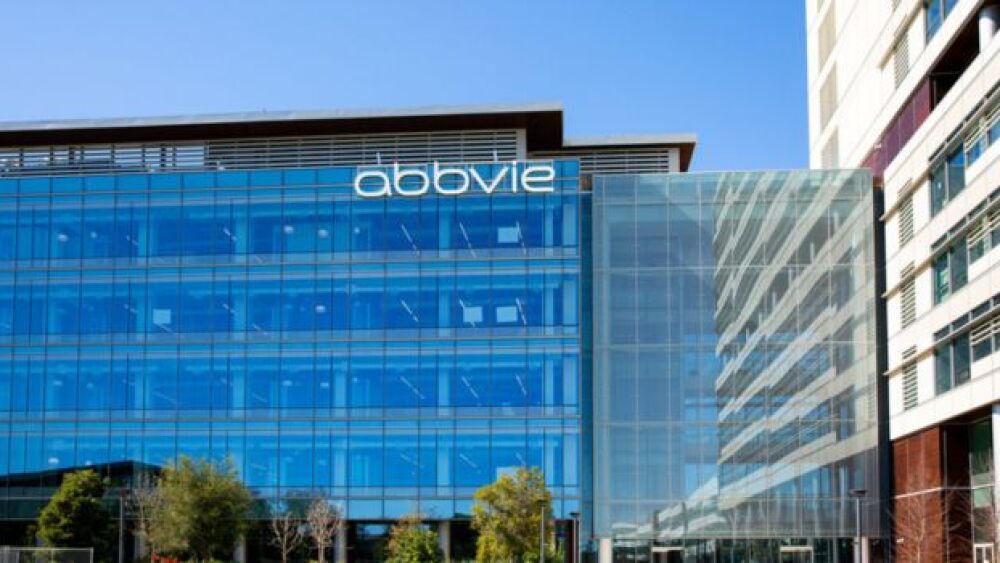Despite offering discounts that reach as high as 85%, Humira biosimilars are finding it difficult to take market share away from the AbbVie blockbuster, according to a new report from Samsung Bioepis.
Pictured: AbbVie’s building in California/iStock, vzphotos
AbbVie’s blockbuster antibody Humira (adalimumab) has ceded only 2% of its massive market share to the five biosimilars that hit U.S. shelves last year, according to Samsung Bioepis’ 4th Biosimilar Market Report.
Biosimilars to Humira have largely been unable to shake its tight grasp on the market even as some of these alternatives come at around 85% discounts to the branded product, according to Samsung Bioepis, a business of South Korea-based Samsung BioLogics. Marketing and pricing strategies—including carrying high and low wholesale acquisition costs—have likewise been ineffective at boosting the biosimilars’ respective market shares.
“The underutilization of Humira biosimilars is a missed opportunity for cost savings, not only for healthcare systems but also for patients. Some of the biosimilars have pricing models that are designed to provide direct cost savings, but patients cannot benefit from these lower-cost options if the biosimilars are not made available to them,” Thomas Newcomer, vice president and head of market access for Samsung Bioepis US, said in the foreword to the report.
There are several Humira biosimilars available in the U.S. The group is led by Amgen’s Amjevita (adalimumab-atto), which debuted on the U.S. market in January 2023. Then, in the span of a few days in July 2023 came a flurry of biosimilar launches, including Celltrion’s Yuflyma (adalimumab-aaty), Sandoz’s Hyrimoz (adalimumab-adaz), Boehringer Ingelheim’s Cyltezo (adalimumab-adbm) and Organon’s and Samsung Bioepis’ Hadlima (adalimumab-bwwd).
Most notable of these is Cyltezo, which also bears the FDA’s interchangeability designation, meaning it has “no clinically meaningful differences” from Humira. Because of this designation, Cyltezo can also be given in place of the branded reference product without needing to change the prescription.
The makers of these biosimilars have offered steep discounts on their products in an effort to sway buyers away from AbbVie. In October 2023, Boehringer Ingelheim launched an unbranded version of Cyltezo with a wholesale acquisition cost that is 81% cheaper than Humira. Cyltezo, meanwhile, is at a 5% discount versus the reference product.
“Despite stagnant biosimilar uptake, Amjevita has shown stable sales and Hadlima is rapidly growing versus other biosimilars. Interchangeability has not yet been demonstrated as a distinguishing factor with Cyltezo market share at 2% within biosimilars. This may change with approval of high-concentration interchangeable products on the horizon,” the report finds.
According to Samsung Bioepis, Hadlima and Coherus Biosimilar’s Yusimry (adalimumab-aqvh) are offering 85% discounts on their products versus Humira.
Yusimry launched in July and at the time, it was pegged to be the most affordable adalimumab alternative in the U.S. Coherus is also partnered with Mark Cuban’s online pharmacy to sell Yusimry at an even cheaper price.
In January 2024, CVS Caremark also announced that it would favor biosimilars versus Humira for its major national commercial template formularies, instead relegating the branded reference product to its Choice and Standard Opt Out commercial formularies, which is usually used by health plans, unions and employers. These changes are set to take effect on April 1, 2024.
Humira is a monoclonal antibody targeting the TNF-alpha cytokine, a key player in inflammation. The FDA first approved the therapy in 2002 for the treatment of rheumatoid arthritis but Humira has since picked up several other indications, including Crohn’s disease and ulcerative colitis.
The therapeutic antibody has also become one of AbbVie’s best-selling assets, bringing in $20.6 billion in 2021, representing a 14% growth versus the year prior. In recent years, however, its loss of exclusivity has eaten away at its sales, with global revenues dropping by 36.2% in the third-quarter of 2023.
Tristan Manalac is an independent science writer based in Metro Manila, Philippines. He can be reached at tristan@tristanmanalac.com or tristan.manalac@biospace.com.






